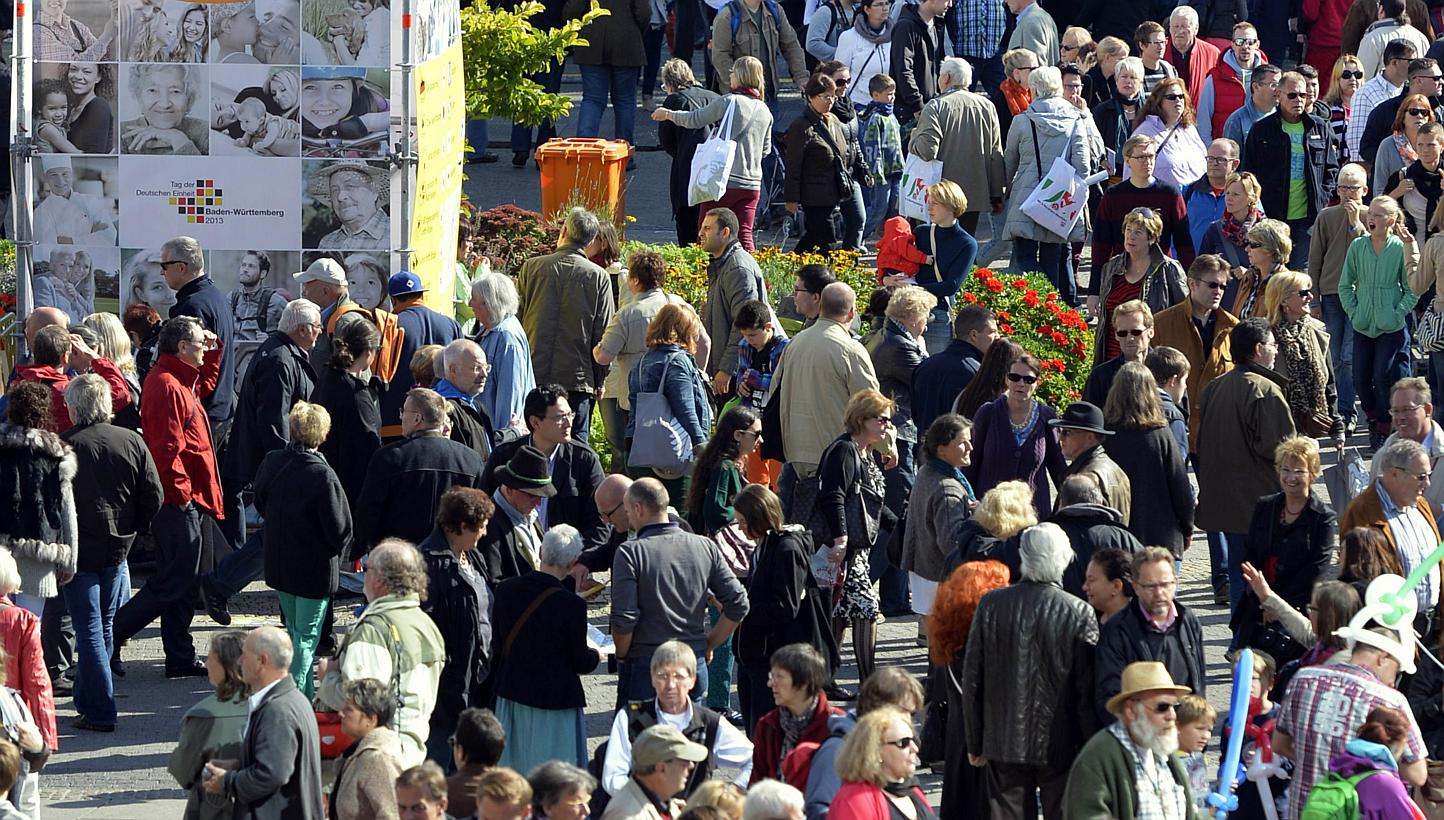German growth slows more than forecast as France accelerates
Sign up now: Get ST's newsletters delivered to your inbox

Germany's economy slowed more than forecast at the start of the year as domestic demand struggled to make up for a drag from trade, while France benefited from a cyclical recovery. -- PHOTO: AFP
Follow topic:
FRANKFURT (Bloomberg) - Germany's economy slowed more than forecast at the start of the year as domestic demand struggled to make up for a drag from trade, while France benefited from a cyclical recovery.
German gross domestic product rose 0.3 per cent in the first quarter after expanding 0.7 per cent in the previous three months, the Federal Statistics Office said on Wednesday. The French economy grew 0.6 per cent after stagnating in the October-December period. Analysts surveyed by Bloomberg News predicted first-quarter growth of 0.5 per cent and 0.4 per cent, respectively.
"The German economy isn't performing as well as we had hoped - consumption isn't making the desired contribution to growth and the external environment is weak," Andreas Scheuerle, an economist at Dekabank in Frankfurt, said before the report. "The French economy picked up but it still doesn't run smoothly. It just runs better than before."
Germany, Europe's biggest economy, is still on track to outperform the euro area over the next two years as countries such as France and Italy lag behind on the reforms needed to sustain the recovery, and Greece weighs on confidence. The European Central Bank has urged governments to use the time bought with its 1.1 trillion-euro asset-purchase plan to make structural adjustments to boost long-term growth.
The euro-area economy probably expanded 0.4 per cent in the first quarter after growth of 0.3 per cent in the fourth, according to a separate survey. That report is due from the European Union's statistics office in Luxembourg at 11 a.m. today. Slovakia, the Netherlands, Italy and Portugal are scheduled to release national figures before then.
Spain, where the government has liberalized the labor market and tackled the legacy of bad debt held by banks since being hit by the crisis, recorded its fastest growth in seven years in the first quarter. The economy expanded 0.9 per cent in the three-month period and is set to grow at almost twice the speed of the euro area this year.
The European Commission raised its outlook for the region on May 5, predicting gross domestic product will increase 1.5 per cent in 2015.
"The economic situation and the short-term outlook for the euro area are currently brighter than they have been for several years," ECB President Mario Draghi said on April 17. "The economic recovery is expected to broaden and strengthen gradually."
Greece may yet throw a spanner in the works. After months of bickering, finance ministers are still short of an agreement that would unlock bailout funds and prevent the government running out of money. ECB policy makers have signaled they're ready to tighten Greek banks' access to emergency funding if progress on a deal isn't made.
With time running out, Greek Finance Minister Yanis Varoufakis has said his nation is aiming to strike a bargain to win the final installments of its 240 billion-euro aid program. His Dutch counterpart Jeroen Dijsselbloem said after talks in Brussels on Monday that the parties are "making faster progress" toward a deal.

